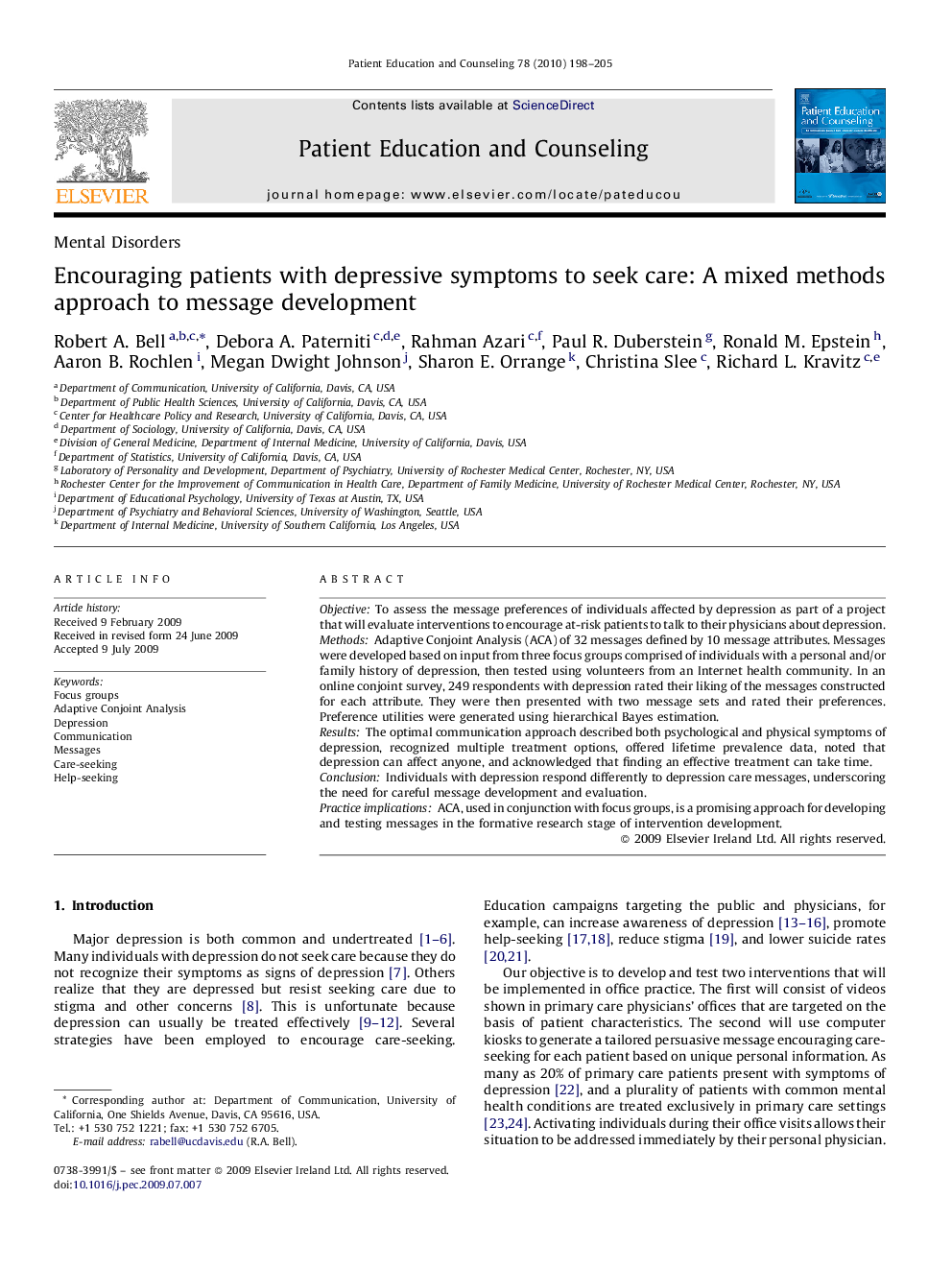| Article ID | Journal | Published Year | Pages | File Type |
|---|---|---|---|---|
| 3815719 | Patient Education and Counseling | 2010 | 8 Pages |
ObjectiveTo assess the message preferences of individuals affected by depression as part of a project that will evaluate interventions to encourage at-risk patients to talk to their physicians about depression.MethodsAdaptive Conjoint Analysis (ACA) of 32 messages defined by 10 message attributes. Messages were developed based on input from three focus groups comprised of individuals with a personal and/or family history of depression, then tested using volunteers from an Internet health community. In an online conjoint survey, 249 respondents with depression rated their liking of the messages constructed for each attribute. They were then presented with two message sets and rated their preferences. Preference utilities were generated using hierarchical Bayes estimation.ResultsThe optimal communication approach described both psychological and physical symptoms of depression, recognized multiple treatment options, offered lifetime prevalence data, noted that depression can affect anyone, and acknowledged that finding an effective treatment can take time.ConclusionIndividuals with depression respond differently to depression care messages, underscoring the need for careful message development and evaluation.Practice implicationsACA, used in conjunction with focus groups, is a promising approach for developing and testing messages in the formative research stage of intervention development.
